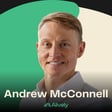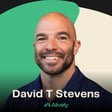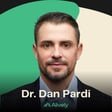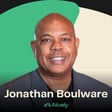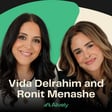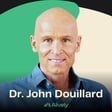
Perfect Your Oral Health Routine with Dr. Jonathan Levine - E59
We’ve all heard that sugar, alcohol, and a sedentary lifestyle are sabotaging our health, but it may come as a surprise that the damage often starts in our mouths. While most of us obsess over fitness routines and diet plans, oral health quietly determines the fate of your heart, brain, and even your healthspan. Ignoring it means risking chronic inflammation, compromised immunity, and an uphill battle against age-related disease, all from habits and routines that seem harmless.
This episode looks into why true longevity and vitality begin with redefining your approach to oral care. We break down the exact tools, strategies, and daily rituals you need to protect not just your smile, but your whole body.
Dr. Jonathan Levine is a leading prosthodontist (a dental specialist who focuses on restoration and replacement of teeth) known for integrating oral health with overall well-being. He’s practiced for over three decades and founded multiple dental businesses, with training from Boston University and NYU. Dr. Levine's work has been featured by multiple mainstream media outlets, including CNN, ABC News and USA Today. He is also an inventor and educator, developing diagnostic protocols and products to optimize both oral and systemic health for a diverse client roster in New York City and beyond.
“Dentistry could be a tip of the spear for diagnostics, for overall health, because people go to the dentist more than they go to their primary care physician.” - Dr. Jonathan Levine
In this episode you will learn:
- Why oral health is considered a foundational pillar of overall health and how habits in the mouth impact longevity and chronic disease risk.
- The history and evolution of dentistry’s separation from medicine, and the modern movement towards integrated, holistic care.
- The relationship between periodontal disease, the oral microbiome, and systemic diseases such as cardiovascular disease, diabetes, and cognitive decline.
- Dr. Levine’s recommendations for daily oral hygiene routines, including toothbrush selection, flossing, tongue scraping, and mouth rinses.
- The importance of early intervention in jaw and facial development for children, and how breathing habits relate to long-term health.
- Why high-performance dental teams and regular professional care are crucial for maximizing healthspan and preventing disease.
Resources
- Connect with Dr. Levine on Instagram: https://www.instagram.com/drjonlevine
- Learn more about Dr. Levine’s work and philanthropy: https://www.drjonathanlevine.com/
This podcast was produced by the team at Zapods Podcast Agency:
https://www.zapods.com
Find the products, practices, and routines discussed on the Alively website:
https://alively.com/



